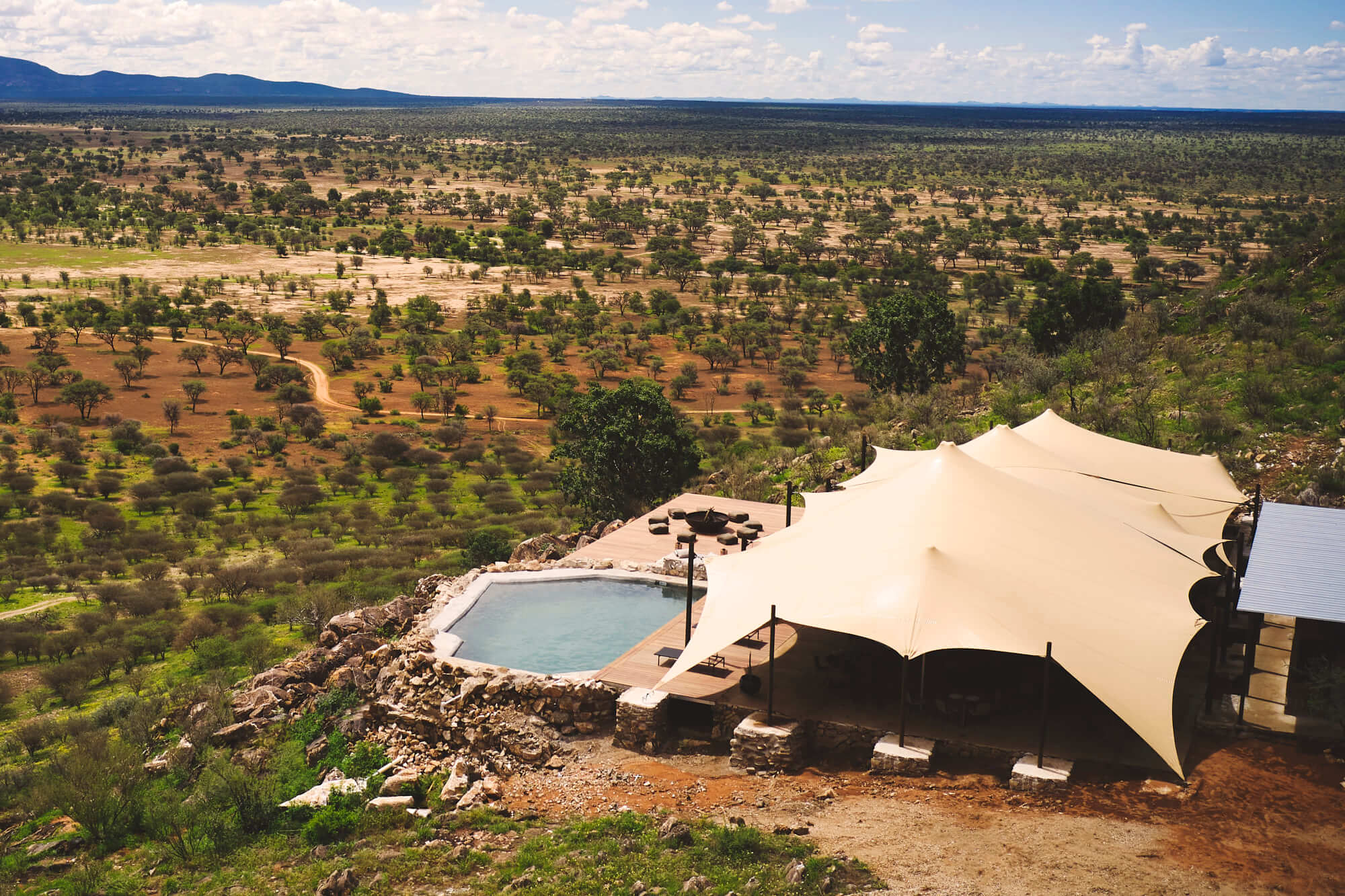
Habitas
A Talk with Oliver Ripley
As travelers demand accountability beyond having a light footprint and being plastic-free, we talk to Oliver Ripley, the CEO and co-founder of Habitas, the new lifestyle and experience hospitality brand that is changing the way we travel.
What started out as informal get-togethers of friends and likeminded people around experiences in Los Angeles, San Francisco, New York and at the annual Burning Man festival, has developed into Habitas, a lifestyle and experience hospitality brand that is sending ripples of excitement through the industry as the game-changer to watch.
Co-founded by Kfir Levy, Eduardo Castillo and Oliver Ripley—the group’s UK-born CEO and self-proclaimed serial entrepreneur also behind private investment company, Black Ocean Group—Habitas’ focus on wellness, sustainability, community and experience redefines our concept of luxury while smartly swooping in on our changing attitude towards travel. “Travelers are not only more conscious, but they also make choices based on the environment and the values that brands stand for,” explains Ripley. “They demand accountability that goes beyond having a light footprint and being plastic-free. They want to participate and be part of the solution.”
We have developed our own research lab and invested heavily into building sustainable practices. We are investing in the future of Habitas and the future of our planet.
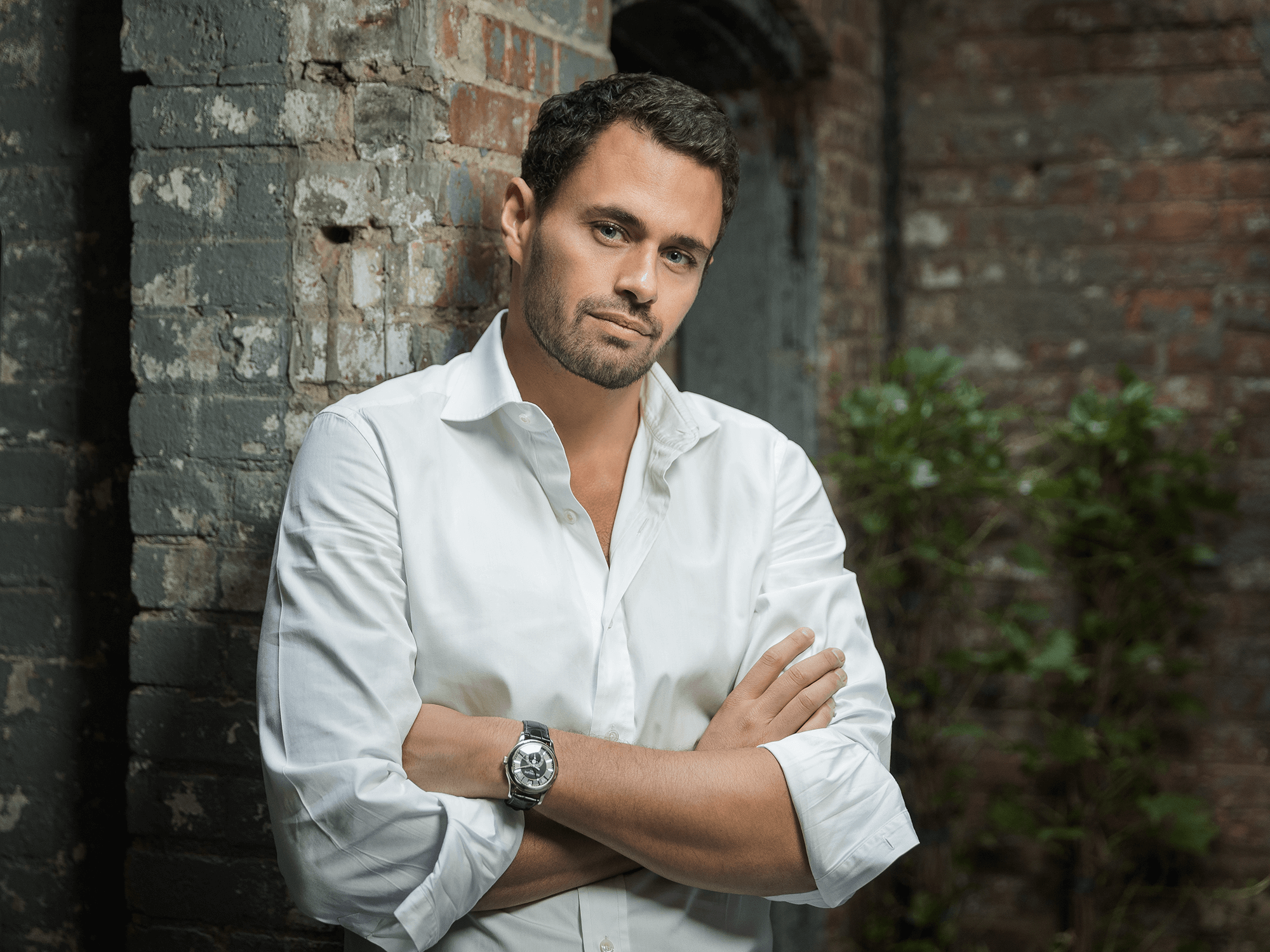
As such, the Habitas approach is to manage the entire production—from ideas to execution—essentially ensuring its stance on sustainability. “Because we both develop and operate our hotels, we are able to select the materials we use, direct how we build (low impact, renewable energy) and ensure we carry this through to the operations, including every interaction with our guests and the local community,” says Ripley. This includes sourcing young wood from forests that are harvested every three to five years; replanting new trees for each one used; running each property on solar energy and recycled wastewater; being entirely plastic-free throughout the entire supply chain; and properly managing and disposing of food waste. Construction-wise, the group manufactures and 3-D prints the hotels in its own factory and then assembles them on-site using sustainable materials and building practices, completing everything—from start to finish—in under nine months. This is something that Ripley says can be a huge challenge but is—no doubt—beneficial in the future. “The cost of transitioning to alternative sustainable solutions may seem high, but the long- term impact makes up for it,” he says. “We have developed our own research lab and invested heavily into building sustainable practices. We are investing in the future of Habitas and the future of our planet.”
Its property in the Mexican beachside town of Tulum, flies the group’s eco flag high. Set on its own secluded beach against a wild emerald jungle backdrop, the retreat was constructed with local carpenters and artisans, its 35 guestrooms perched on stilts—to minimize the environmental impact—using indigenous, sustainable materials, such as natural thatch for the roofs. Inside, bohemian chic gently intrudes by way of handcrafted furnishings—made from local hardwood—and accessories that nod to artisanal tradition, craftsmanship and textiles, including the custom-made bathroom amenity line by Habitas, which completes the outdoor shower experience. “It’s our mission to change the myth that responsible tourism means sacrificing comfort and luxury,” says Ripley. “We also believe that physical luxury is just a starting point. What’s equally important is luxury for the soul. And this comes from a sense of responsibility and connection with nature, culture and community.”
Travelers are not only more conscious, but they also make choices based on the environment and the values that brands stand for
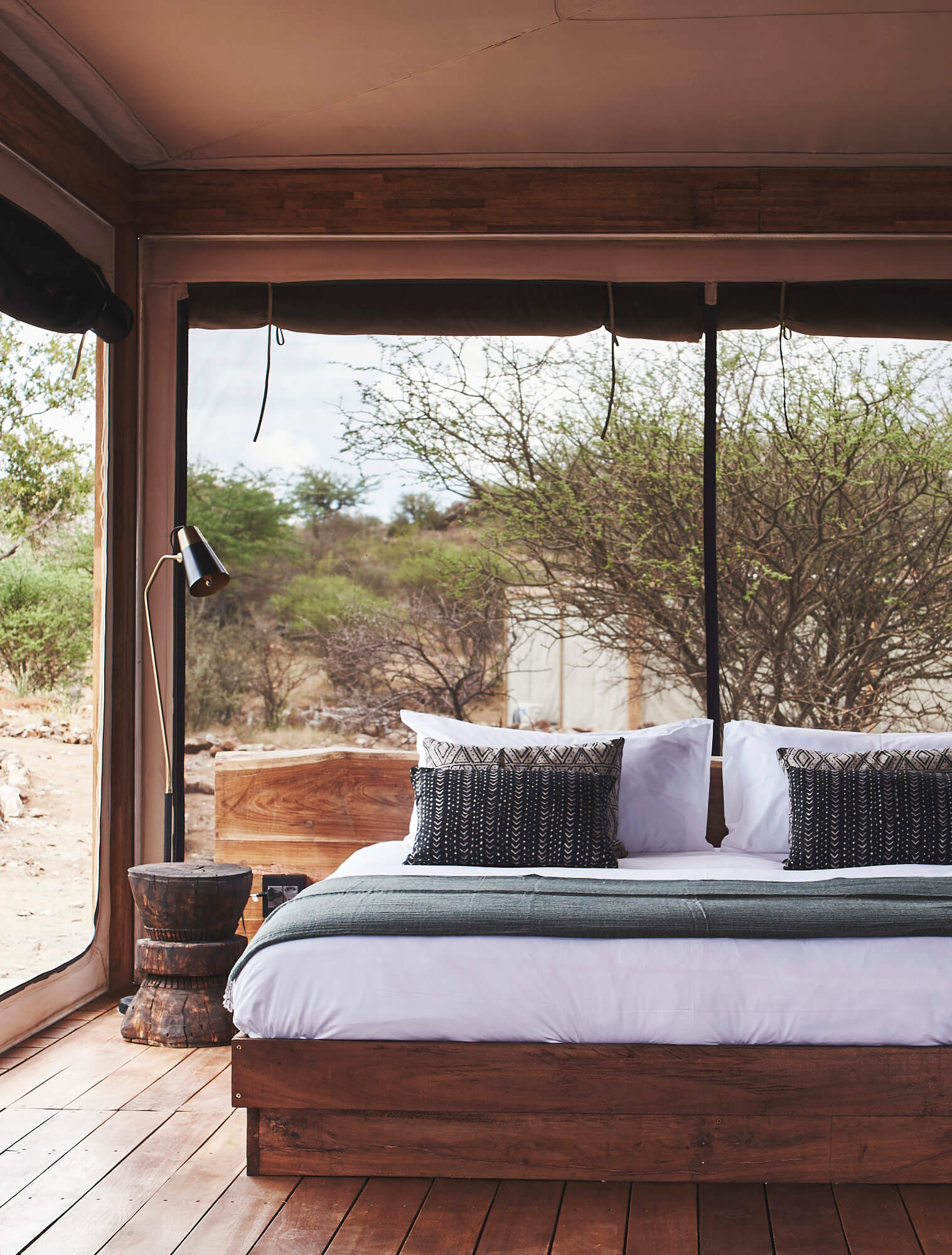
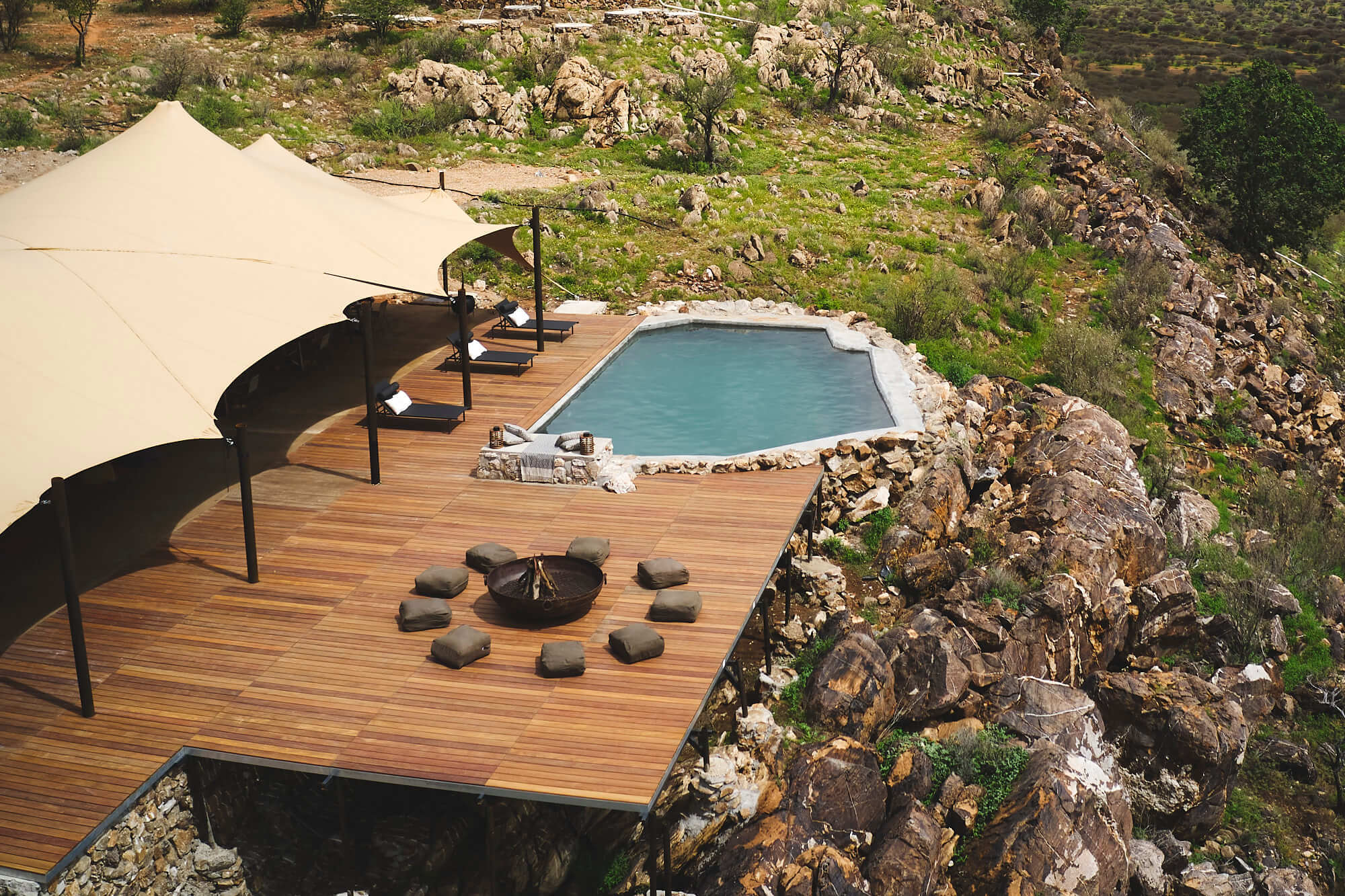
This is particularly true at the group’s sophomore property in Namibia. Billing itself as “the most unique and disruptive safari and wildlife experience in the world,” Habitas Namibia offers a multi-sensory experience through an immersive program that ranges from bush meditation and savannah yoga to bushman bow crafting, medicinal plant workshops and storytelling with locals.
Located just 45-minutes from Windhoek’s International Airport on a 47,000-hectare private estate teeming with wildlife such as rhinos, giraffes, cheetahs, antelope, wildebeest and more, the 20-suite lodge is an example of Habitas’ proclivity for off-the-beaten-path destinations with a strong sense of community and cultural heritage. “Our minimal impact construction approach—we built our hotel fully off-grid—allows us to activate some of the most unique locations in the world while protecting mother nature,” says Ripley. Unique, indeed. Best-known for its dramatic otherworldly landscape dominated by the dry, desolate sweep of the Namib Desert, bulging strata-lined ridges and russet wind-rippled sand dunes, Namibia is one of Ripley’s favorite destinations and an ideal spot for Habitas to fully implement everything it stands for.
This approach is further cemented by Habitas Rise, the group’s impact arm. With a focus on strengthening local communities and promoting environmental and social sustainability, the initiative has ongoing projects—such as job opportunities through hospitality training in Namibia—in its current and upcoming hotel locations, but also expands outside of that to countries like Uganda. Here, the group is working with locals to develop public spaces for performances, art, meetings and culture in Kyebando, a neighborhood in Kampala, while in the southwest of the country, in the Nakivale Refugee Settlement, there are plans to build an amphitheater, which will provide the first public gathering place for over 150,000 refugees from 14 African nations. Back in Tulum, meanwhile, the group has partnered with Papaya Playa Project, another sustainable boutique hotel brand, to launch Tulum Proactive Response to support those in the tourism industry affected by the Covid-19 pandemic. “Human connection, understanding and compassion is needed now, more than ever,” says Ripley. “Our mission and ethos has never felt more relevant.”
Of course, the coronavirus pandemic has upended the entire world. A big bite has been taken out of the travel and tourism industry in particular, but while Ripley acknowledges that the impact will take a while to overcome, he is adamant that these challenging times are an opportunity for change. “I believe that the coronavirus has made people more aware and conscious of their health, community, nature and appreciation for life,” he says. “We need to use this moment to collectively facilitate change and to create a more sustainable future for travel and tourism through education and understanding. I’m very optimistic, and we will lead by example.”
With new properties in Mexico, Saudi Arabia, Costa Rica and Bhutan in the pipeline to open this year and in 2021, Habitas is certainly on a trailblazing mission to change the way we travel. As Ripley says, “Leading by example is a proven way to create a meaningful impact, not only on guests and staff, but on other hospitality brands as well. By using Habitas as a platform in the communities where we build our spaces, we can educate guests, raise awareness, open their minds and give back.”
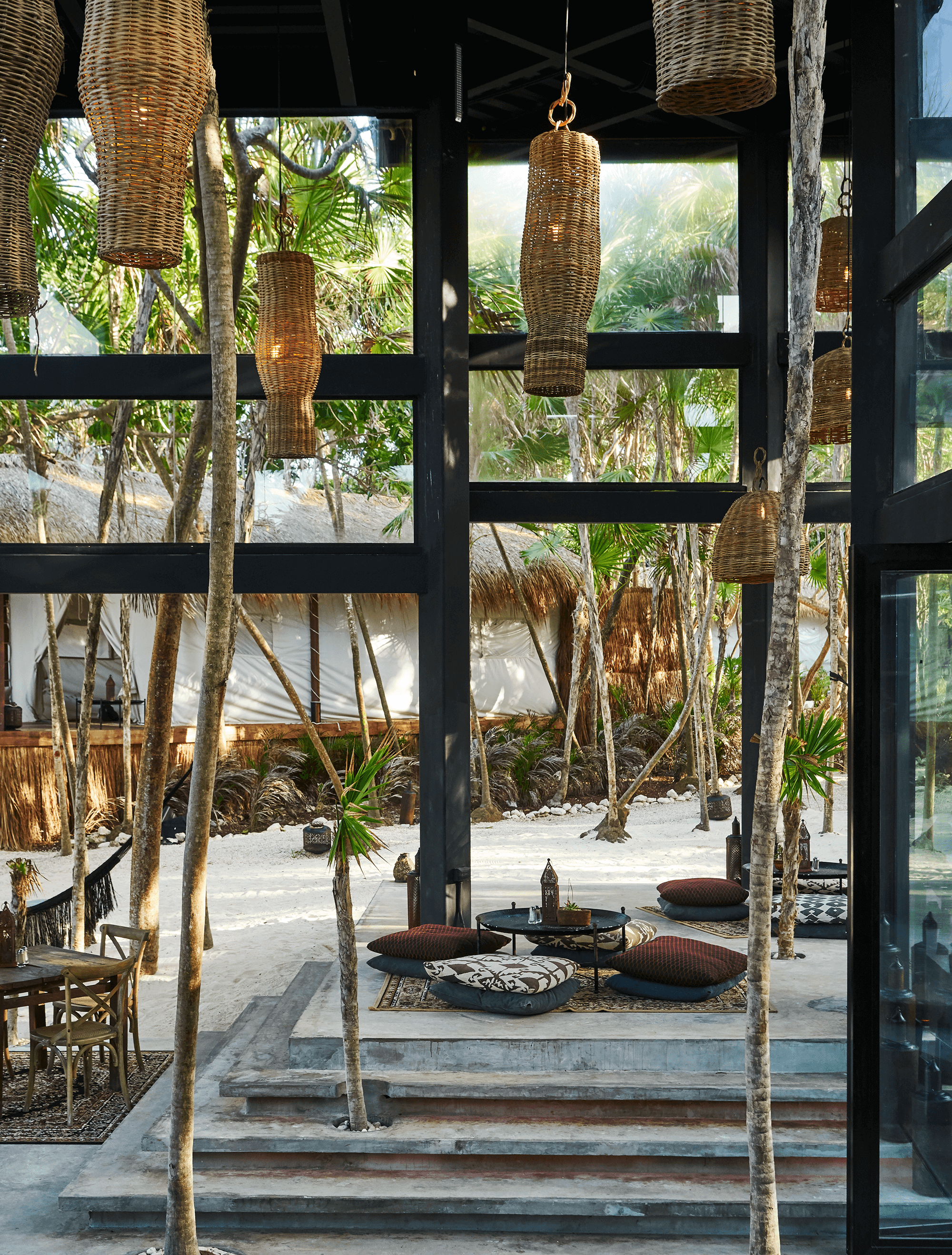
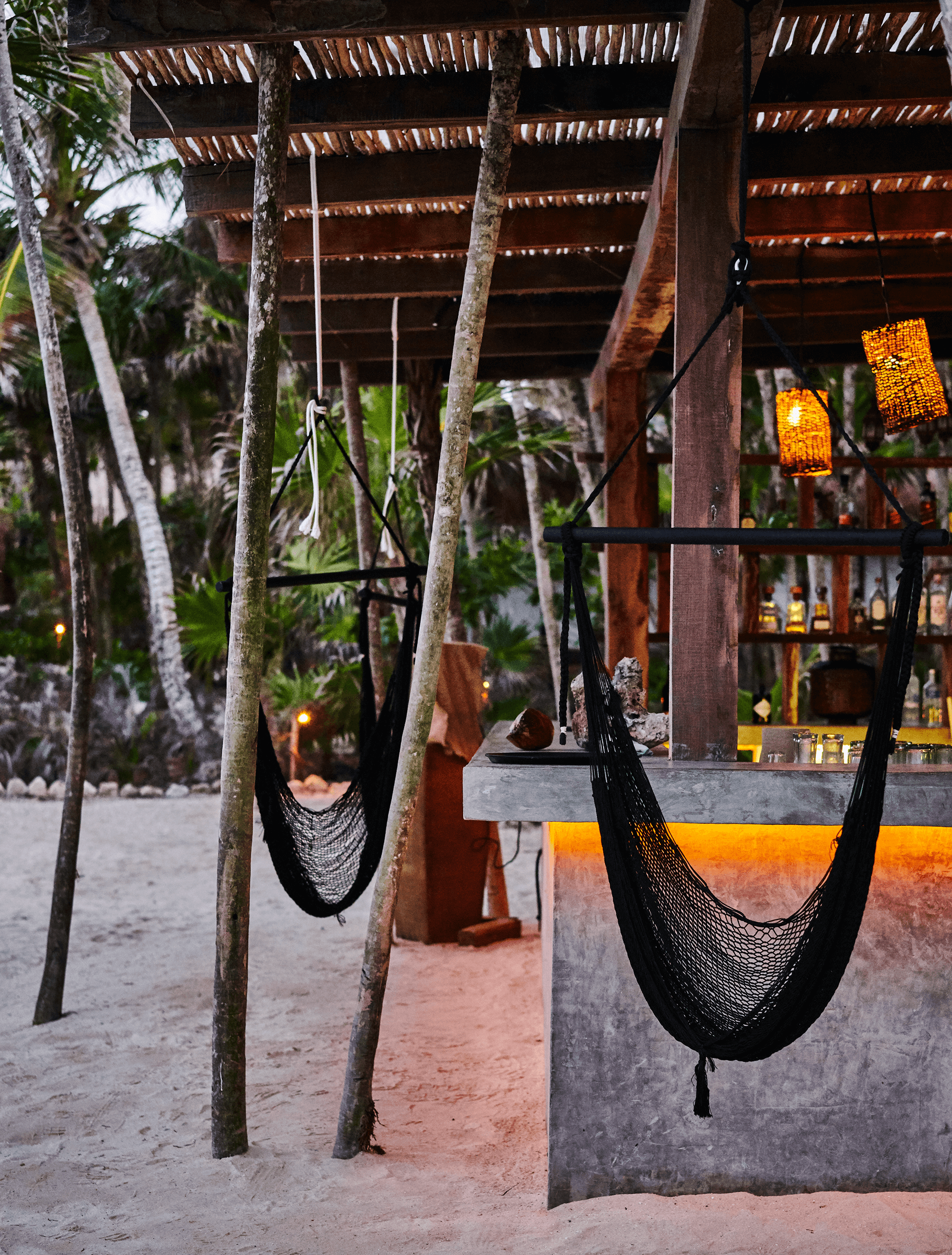
images copyrights Adrian Gaut
images copyright for Oliver Ripley portrait Sasha Maslov
words by Lauren Ho

